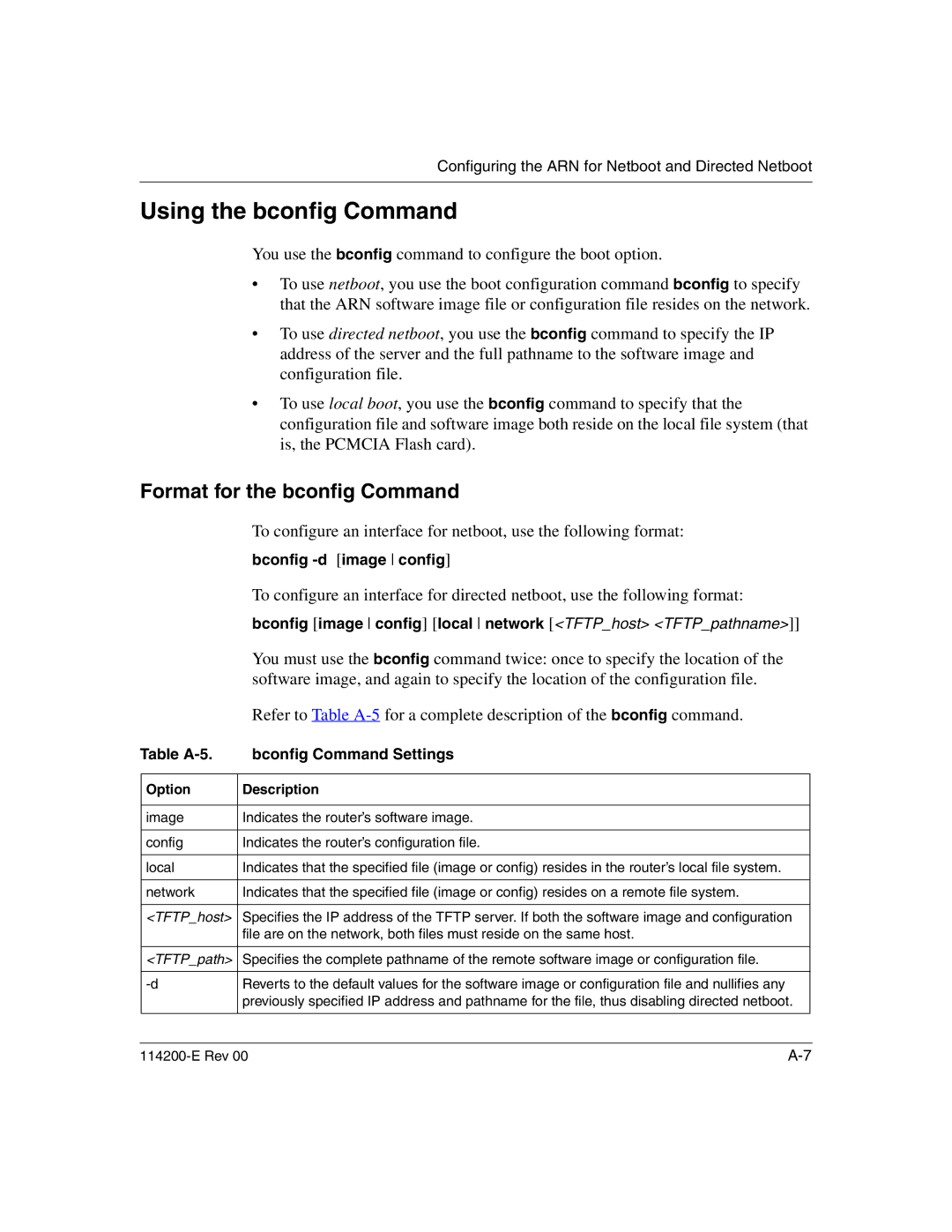Configuring the ARN for Netboot and Directed Netboot
Using the bconfig Command
You use the bconfig command to configure the boot option.
•To use netboot, you use the boot configuration command bconfig to specify that the ARN software image file or configuration file resides on the network.
•To use directed netboot, you use the bconfig command to specify the IP address of the server and the full pathname to the software image and configuration file.
•To use local boot, you use the bconfig command to specify that the configuration file and software image both reside on the local file system (that is, the PCMCIA Flash card).
Format for the bconfig Command
| To configure an interface for netboot, use the following format: |
|
| bconfig |
|
| To configure an interface for directed netboot, use the following format: |
|
| bconfig [image config] [local network [<TFTP_host> <TFTP_pathname>]] | |
| You must use the bconfig command twice: once to specify the location of the |
|
| software image, and again to specify the location of the configuration file. |
|
| Refer to Table |
|
Table | bconfig Command Settings |
|
|
|
|
Option | Description |
|
|
|
|
image | Indicates the router’s software image. |
|
|
|
|
config | Indicates the router’s configuration file. |
|
|
|
|
local | Indicates that the specified file (image or config) resides in the router’s local file system. |
|
|
|
|
network | Indicates that the specified file (image or config) resides on a remote file system. |
|
|
| |
<TFTP_host> | Specifies the IP address of the TFTP server. If both the software image and configuration | |
| file are on the network, both files must reside on the same host. |
|
|
|
|
<TFTP_path> | Specifies the complete pathname of the remote software image or configuration file. |
|
|
|
|
Reverts to the default values for the software image or configuration file and nullifies any |
| |
| previously specified IP address and pathname for the file, thus disabling directed netboot. | |
|
|
|
|
|
|
